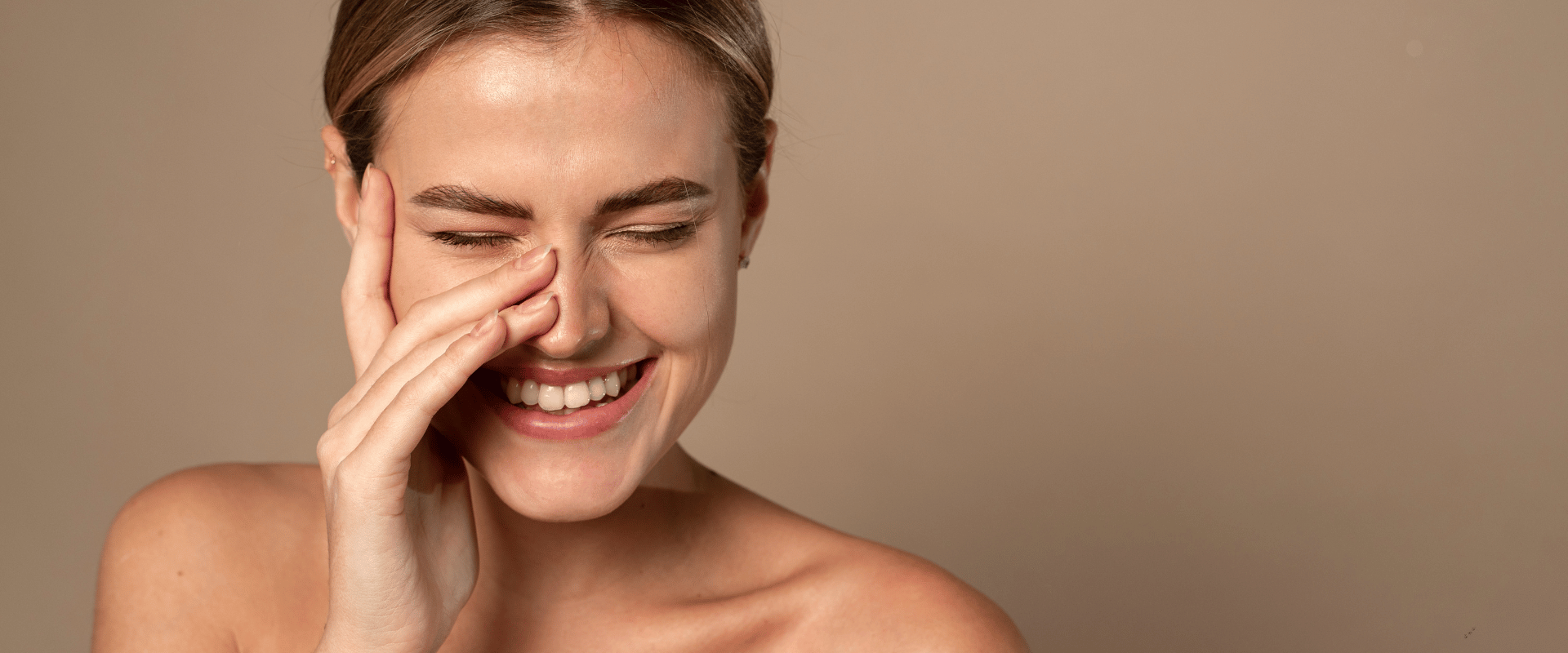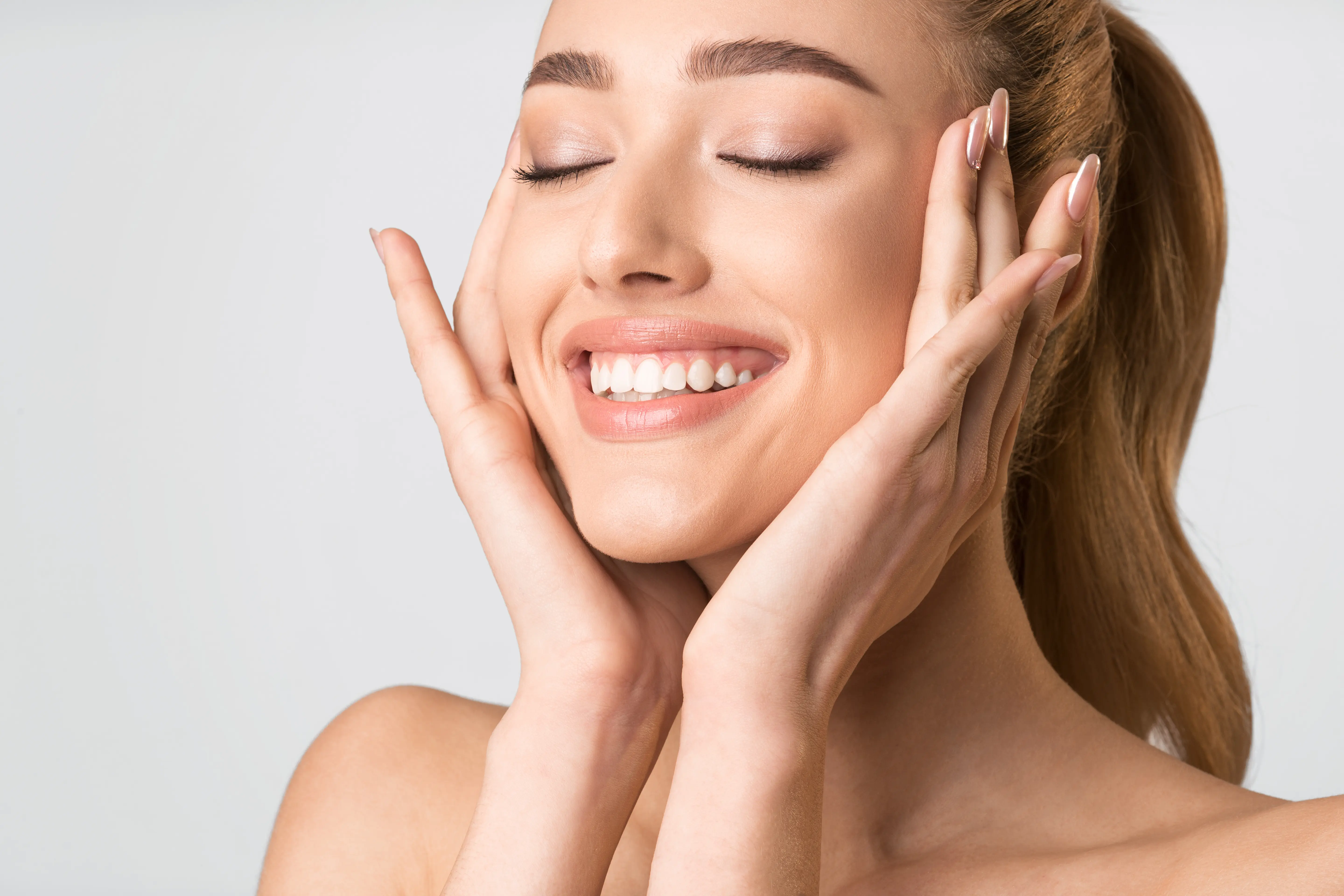Botox in Falls Church
Theraputic & Cosmetic Injections
Looking for expert Botox treatments in Falls Church? At Purple Plum, we specialize in precise, natural-looking results that help smooth fine lines, ease jaw tension, and refresh your overall appearance. Whether you're addressing forehead wrinkles, frown lines, or facial tightness from TMJ or teeth grinding, our experienced team tailors each treatment to your unique facial structure and goals. We’re proud to serve Falls Church with a comfortable, professional setting where you can relax knowing you’re in skilled hands.
Refresh Your Smile. Relieve Your Pain.
we go beyond traditional dental care by offering modern facial treatments that support oral health and aesthetics.
By carefully applying neuromodulator therapy we help ease TMJ pain, minimize teeth grinding and enhance the results of cosmetic dental work. These treatments can also rejuvenate your appearance and oral health and help you feel refreshed.


Addressing Temporomandibular Joint Disorders (TMJ) with Botox Injections
A notable application of Botox in dentistry lies in the management of temporomandibular joint disorders (TMJ), which often cause significant pain and discomfort, hindering basic functions like chewing and speaking. By inducing muscle relaxation, Botox alleviates strain on the temporomandibular joint, offering relief to patients, reducing pain, and facilitating joint recovery. Moreover, Botox demonstrates efficacy in alleviating headaches linked to TMJ disorders. Patients treated with Botox for TMJ disorders often experience significant relief and improved quality of life.
Managing Bruxism (Teeth Grinding)
Bruxism, the common phenomenon of teeth grinding, poses a prevalent dental concern that can lead to tooth wear, fractures, and damage to dental restorations. Botulinum toxin injections, such as Botox, play a pivotal role in managing bruxism by relaxing the jaw muscles responsible for teeth grinding, thereby diminishing the intensity and frequency of teeth clenching, safeguarding dental health overall.
Botox as a Complementary Tool in Dental Procedures
Beyond standalone treatments, Botox serves as a complimentary adjunct to traditional dental procedures, augmenting their efficacy and enhancing the patient experience.
Botox - Augmenting Cosmetic Dental Treatments
In the realm of cosmetic dentistry, where precision and aesthetics are paramount, Botox can be integrated with treatments like veneers or dental implants to optimize outcomes. By relaxing specific facial muscles, Botox harmonizes with cosmetic work, ensuring a natural and aesthetically pleasing smile. Target areas for improvement include brow lines (Glabellas/11s), forehead lines, crow’s feet around the eyes, frown lines, and lip lines. The synergy between cosmetic dentistry and Botox not only enhances smiles but also promotes a rejuvenated and youthful appearance.
Unexpected Relief for Chronic Migraines
Botox has emerged as a surprising therapeutic option to treat chronic migraine sufferers. Strategic injections of Botox in specific head and neck areas can mitigate both the frequency and severity of migraine attacks. This effect is achieved through muscle relaxation and the blockade of pain signals that trigger migraines, offering newfound hope for individuals grappling with chronic migraines.
The benefits of Botox in dentistry
1. Non-surgical facelift
Botox offers a non-surgical facelift option, providing patients with a more youthful and rejuvenated appearance. By targeting the facial muscles responsible for wrinkles, Botox smoothens the skin, giving you a natural and refreshed look.
2. TMJ pain relief
Patients suffering from TMJ disorders often experience chronic pain and discomfort. Botox injections can help relax the jaw muscles, reducing tension and alleviating the pain associated with TMJ. Additionally, Botox is also used to treat upper limb spasticity, providing relief for patients with muscle tension issues.
3. Minimally Invasive
Unlike surgical procedures, Botox injections are minimally invasive and require no downtime. Patients can resume their daily activities immediately after the treatment, making it a convenient option for those with busy schedules. It is crucial to ensure a clean injection site to prevent infections and ensure effective treatment.
4. Long-lasting results
While the effects of Botox are not permanent, they do offer long-lasting results. Typically, the benefits of Botox can last anywhere from 3 to 6 months, depending on individual factors.
Discover the benefits of Botox in dentistry at our Falls Church, VA practice. We specialize in TMJ pain relief, bruxism management, and cosmetic dental enhancements, combining innovative Botox treatments with skilled dental care for a rejuvenated, pain-free smile. Experience long-lasting, minimally invasive results tailored to your needs.

Botox Treatment Process
Before receiving a Botox injection, it is crucial to inform your doctor about all the medications and supplements you are taking. Avoid alcohol within 24 hours of your injections. If you are on anticoagulants (such as warfarin) or nonsteroidal anti-inflammatory drugs (NSAIDs), you may have an increased risk of bleeding and bruising. Make sure to discuss any medical conditions with your doctor.
The procedure involves injecting a small amount of Botox into the skin and muscles using a very fine needle. Depending on the treatment area, you may receive several injections at different sites. If you are concerned about discomfort, you can ask your doctor to numb your skin beforehand. Most patients can return to their regular activities immediately after the treatment.
Safety and Side Effects
The most common side effects of Botox include headache, drooping eyelids, facial asymmetry, and flu-like symptoms. Rare side effects can include eye problems, swallowing difficulties, and speech difficulties. If you experience symptoms such as difficulty swallowing, breathing difficulties, drooping eyelids, or facial weakness, you may be having a serious reaction to botulinum toxin.
Botox is not recommended for individuals with certain medical conditions, such as neurological disorders, muscle weakness, and specific eye problems. It is essential to discuss your medical history and any concerns with your doctor before undergoing Botox injections.
In clinical trials, Botox has been shown to be safe and effective for treating various medical conditions, including chronic migraine, overactive bladder, and excessive sweating. However, as with any medication, there are potential risks and side effects associated with Botox. It is crucial to follow your doctor’s instructions and attend follow-up appointments to monitor your progress and address any concerns.
Frequently Asked Questions
Yes, Botox has been effective in reducing the frequency and severity of migraines. By injecting Botox into specific head and neck areas, it helps to block pain signals and relax muscles, providing relief to chronic migraine sufferers.
Typically, the effects of Botox injections can last between 3 to 6 months. The duration may vary depending on individual factors such as muscle activity and the specific condition being treated.
Botox injections are generally well-tolerated and involve minimal discomfort. The procedure is minimally invasive, and most patients experience only a brief, mild sensation during the injection.
Yes, Botox is a minimally invasive treatment with no required downtime. Patients can immediately resume their daily activities after the procedure, making it a convenient option for those with busy schedules.

